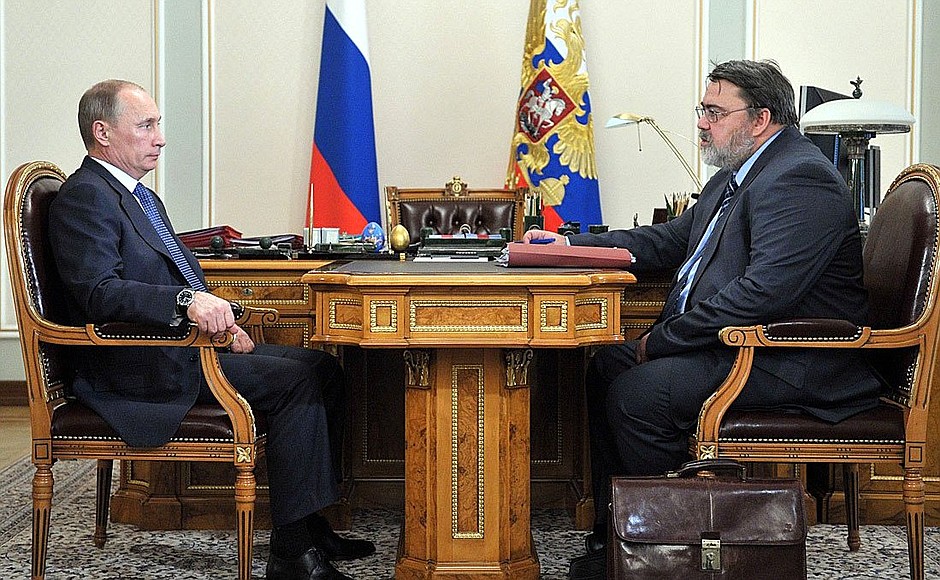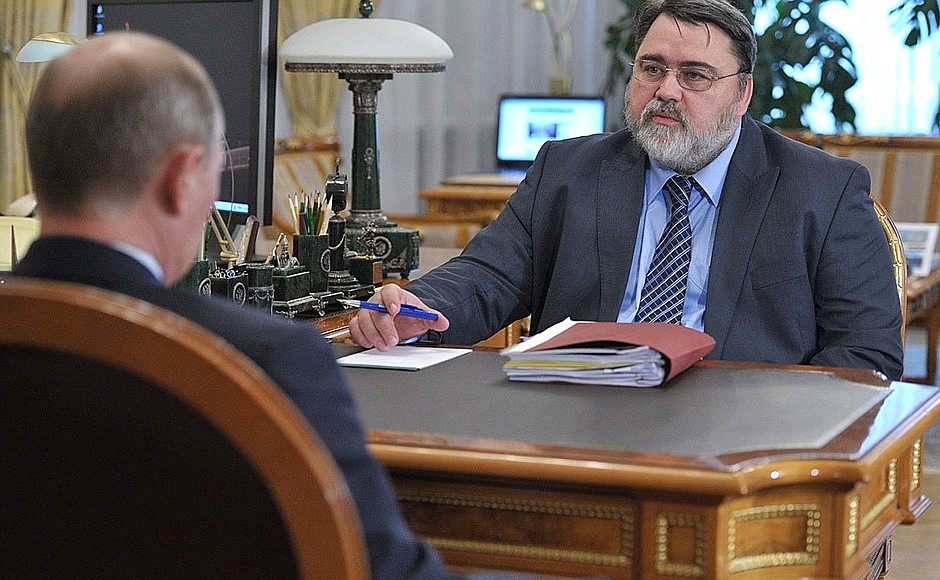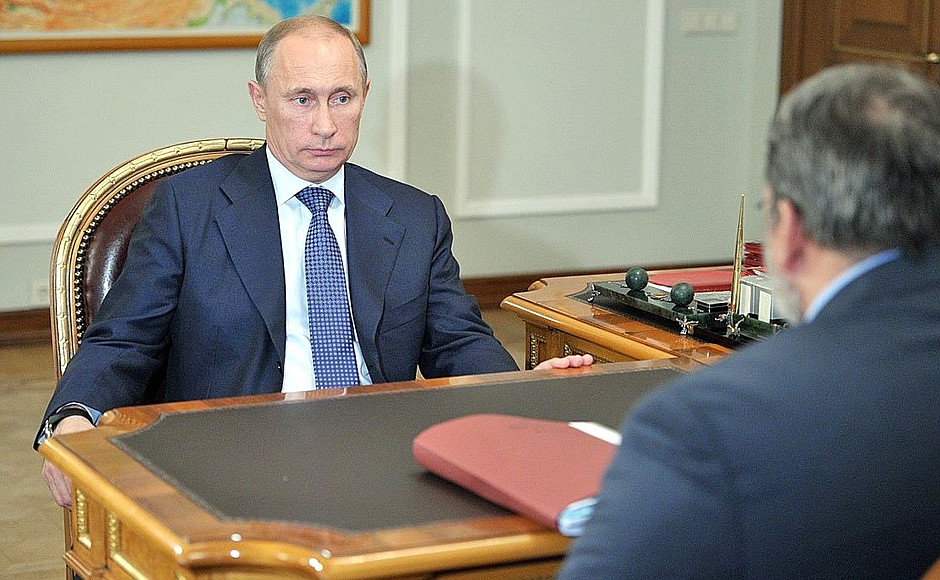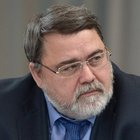* * *
President of Russia Vladimir Putin: Mr Artemyev, as you know, we are working with many organisations, including international ones, the Organisation for Economic Cooperation and Development, on the approximation of our standards with international ones.
I know you are working in this area together with the OECD, and there are already some positive results. I suggest that we talk about this and then, of course, touch on the Service's current activities.
Head of The Federal Anti-Monopoly Service Igor Artemyev: Mr President, last week the OECD’s Competition Committee made a very important decision in our view.
For three years we have been engaged in this work as per your instruction and as per the decision of the Russian Government. The Competition Committee resolved that Russia generally meets the OECD standards and requirements as regards protection of competition, and it has also resolved that our laws are harmonised, that we have a developed enforcement system, and we got the corresponding recommendations from the Committee. So, this three-year work we’ve been doing to join the OECD is complete.
<…>
Also last week we have been assigned the so-called world’s competition authorities’ rating. I should note that this is an annual survey compiled by the Global Competition Review within the framework of the International Competition Network (ICN), and we have been on the survey for seven years now.
The rating lists only the countries that have harmonised their laws, and Russia, having made the corresponding amendments to its laws in the past seven years, was naturally included in the list.
We have fixed our position, we are in the top 20 together with such countries as Italy, the Netherlands, Austria – the group that has been rated as “good”, and on the whole, for now we are happy with our group.
Two major organisations that set the trend in our international sphere, the OECD and the International Competition Network, assessed the Russian Federation in more or less the same way in this respect as regards things already done and things yet to be done.
<…>
In terms of our day-to-day activities, I would like to first of all note that in the past few years we have stepped up our cooperation with police agencies as regards cartel investigations. We still believe that this is a serious evil for our economy, actually not only for our economy, but for other economies too. For instance, the European Union pays utmost attention to this issue. Eleven criminal cases have been opened by police agencies and investigation authorities in various areas, including information, fishery, and high technologies.
<…>
As regards other topics such as abuse of dominant position and unfair competition, the creation of a supranational agency within the framework of the Customs Union is extremely important. We are working actively on the documents, preparing them together – working with the Customs Union, with management authorities together with Belarus and Kazakhstan. We have made some serious progress as regards the analysis of markets, and very soon this agency will start operating, and we are ready to help it in every possible way.
I think this would add a new quality to our work, as before our investigations always stopped at the Russian border, and like our Belarusian and Kazakhstani colleagues, we were unable to investigate transborder violations, including cartels, unfair competition, and abuse of dominance.
Now these transborder violations are within our focus and that of the supranational agency, and we believe this would contribute to the Common Economic Space development and improvement of economic performance indicators.
<…>



